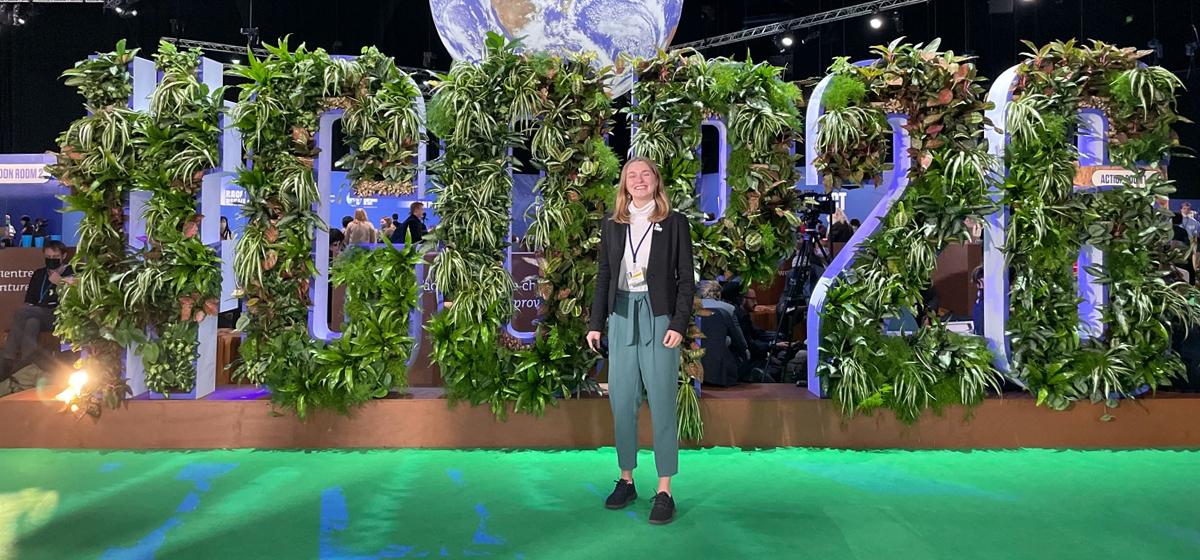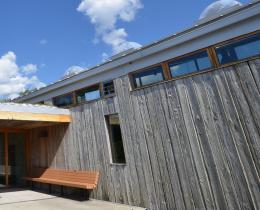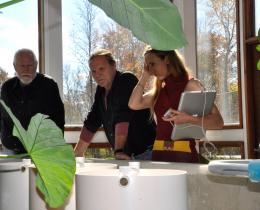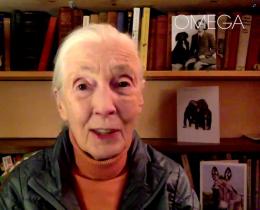Omega: What brought you to COP26, the United Nations Climate Change Conference?
Haley: I’m a climate contractor and on-the-ground organizer for US Action for Climate Empowerment (ACE). As part of the Omega coalition representing ACE, I was one of 70 delegates to hold three coalition events at the US Climate Action Center during COP26.
Omega: What is ACE and what did you accomplish as part of the US ACE coalition at COP26?
Haley: Action for Climate Empowerment (ACE) was formed out of the original Paris Climate Agreement to get civil society involved in climate change. Though it’s an underappreciated part of the agreement, it is described in Article 12.
We are a group of organizations and experts working to accelerate just, efficient action towards a climate-safe future—to empower all members of society to engage in climate action, through education, training, public awareness, and participation.
At COP26, we held one event on youth activism, another introducing ACE to the community, and another on social justice and inclusivity. Our talks at the pavilion were amplified in the WhatsApp chat through livestreams, interviews, and daily digests.
Omega: What were your key takeaways from COP26?
Haley: I appreciated how civil society and activists came together in agreement during the conference, calling unanimously for more ambition to lower greenhouse gases. However, I was shocked to see that there were twice as many people in the fossil fuel delegation and OPEC [the Organization of the Petroleum Exporting Countries].
One of the coolest things at the conference was, on the last day, there was a walkout of about 1,000 people. We walked out peacefully, during a plenary session with NGO [non-governmental organization] constituencies, holding red fabric that represented the red line that we cannot cross.
Omega: What do you think are the most pressing problems we face on a global scale, concerning climate change?
Haley: The most pressing problem is, how do we stop using fossil fuels? The knowledge is there, but the political will is not. In all the negotiations, fossil fuels are mentioned as the main culprit, but I was disappointed by the weakening of the language from a phasing out of fossil fuels to “do what you can.”
Omega: How successfully do you think the COP26 negotiations addressed those issues?
Haley: As negotiation got underway, it was interesting to see the divergence between civil society and the negotiators. As I mentioned, I was disappointed by the weakening of the language from urging countries to commit to requesting them to deliver more ambitious pledges. But my hope is that we can continue to turn up the pressure and show up, so that our actions can make a real impact on phasing out fossil fuels.
Omega: Who inspires you and who are you learning from?
Haley: The anti-pipeline groups, indigenous-led movements, and the water protectors inspire me the most. I feel strongly that we need to center racial and economic justice and intergenerational equity in our work.
Omega: What feels alive for you in your work right now?
Haley: I’m very excited about how excited others are about ACE and the necessity of this work. Once people get it—and once we reach a critical mass of people who see what can happen—that leads to real change.
I’m currently looking at what other nations are doing on the ground with ACE, such as Argentina, Chile, Ghana, and EU (European Union) countries, versus what our government is doing. We are looking to convene 10 federal and 10 non-federal representatives to community-review ACE and how we can be more coherent in our efforts.
Omega: How can our readers support your work?
Haley: Financial support is hard to come by in this space. Making it possible for ACE delegates to get to climate change conferences, like Omega did for me, is critically important.
As we continue to do this work in support of the interconnected nature of all living things, we invite you to join with us by contributing to the Omega Institute. Gifts of $10/month sustain our work and qualify for a number of member benefits. Become a Member today.



